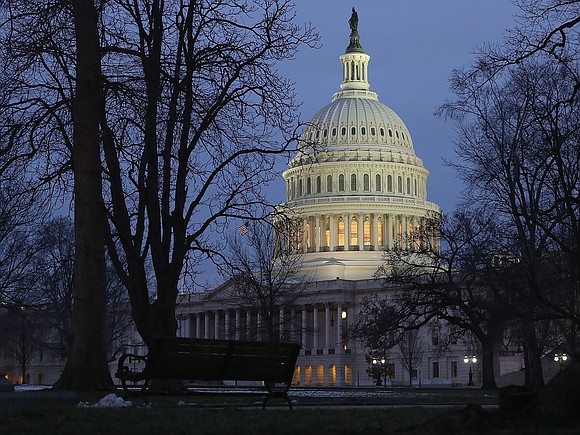Defense bill offers harsh words for Russia and China
CNN/Stylemagazine.com Newswire | 7/24/2018, 9:45 a.m.

By Ryan Browne, CNN
(CNN) -- The final version of the 2019 defense bill offers harsh words for Russia and China, keeping in place restrictions that prevent the US military from cooperating with Moscow.
The $717 billion bill "prohibits military-to-military cooperation with Russia," according to a summary of the legislation released by Republican Rep. Mac Thornberry of Texas, the chairman of the House Armed Services Committee.
That prohibition was also contained in previous years' versions of the bill but comes as Moscow has floated increased cooperation following President Donald Trump's meeting with Russian President Vladimir Putin in Helsinki.
The report, which represents a compromise between the House and Senate versions of the defense bill, also funds the Trump administration's plan to develop a lower-yield ballistic missile warhead aimed at deterring Russia, as well as supports Trump's request for $250 million for lethal defensive aid to Ukraine and $6.3 billion for the European Deterrence Initiative "to further increase number of US troops in Europe, reassure US partners and allies, and deter Russian aggression."
The compromise bill will also grant the Trump administration the authority to waive sanctions in the 2017 Countering America's Adversaries Through Sanctions Act, a bill that passed with an overwhelming majority and that was labeled "flawed" by Trump.
Senior members of the administration had sought the ability to waive certain elements of the sanctions, particularly those that pertained to sanctioning countries that purchased arms or other military equipment from Russia.
On Friday, Secretary of Defense Jim Mattis sent a letter to Congress, saying that although "Russia should suffer consequences for its aggressive, destabilizing behavior" it was "imperative" for them to grant Secretary of State Mike Pompeo the authority to waive these sanctions.
Mattis said this waiver authority would allow countries "to build a closer security relationship with the US as they continue to transition from reliance on Russian military equipment" and that failing to do risked leaving these nations with "no other option than to turn to Russia, thereby undermining a once in a generation opportunity to more closely align nations with the US vision for global security and stability."
US officials are particularly concerned about countries -- like India, Vietnam and Indonesia -- that have enjoyed increasingly close defensive ties with the US in recent years but also maintain large amounts of Russian military equipment.
A congressional aide familiar with the defense bill compromise told CNN there were concerns that Moscow was attempting to exploit the sanctions by offering reduced prices on military gear to its international customers in an attempt to split them from the US.
The aide said the new modified authority would allow the President to waive the sanctions under certain circumstances.
While Mattis had sought the waiver authority to rest with Pompeo, the compromise bill invests the authority with Trump.
"Congress tends to elevate waivers to the presidential level as a signal to the administration about how seriously it takes the authority being given," Claude Chafin, a spokesman for the House Armed Services Committee, told CNN.
Under the new authority, purchases of new equipment, like the Russian-made S-400 air defense system, would still face potential sanctions, while the maintenance of legacy systems such as the purchase of replacement parts for Russian-made helicopters could be exempted through the waiver process.
US officials have expressed concerns that systems like the S-400 could pose a threat and potentially gather intelligence on US and NATO military assets.
The bill also tasks Mattis with producing an assessment of the US-Turkey relationship that examines US military equipment sales to Ankara.
Some members of Congress had sought to use the bill to block Turkey's receipt of F-35 stealth jets outright over Ankara's pursuit of the S-400, something Mattis had opposed.
The compromise defense bill also takes a tough line on China, calling for a government strategy aimed at countering Beijing's activities in a variety of spheres and for bolstering America's military partnerships with countries in the region, including Taiwan.
It "prohibits any US government agency from using risky technology produced by Huawei or ZTE, two companies linked to the Chinese Communist Party's intelligence apparatus. The NDAA also prohibits any entity doing business with the US Government from using Huawei or ZTE technology," according to the summary.
The congressional aide said companies doing business with the federal government would have five years to rid themselves of the technology in question.
The conference report also restricts funding for drawing down troops from South Korea below 22,000 unless Mattis certifies that the drawdown would "not significantly undermine the security of US allies" and that allies Japan and South Korea were consulted, a restriction in both the Senate and House versions.
There are currently about 28,000 US troops in South Korea.




